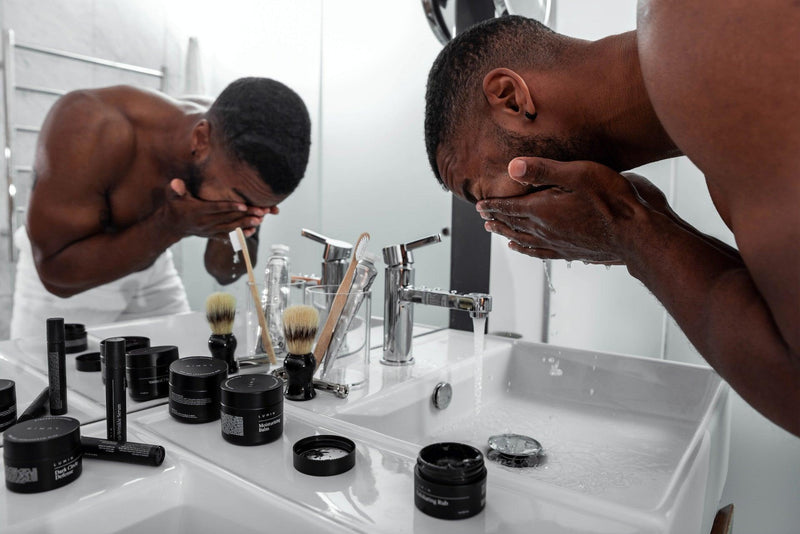5 Things You’re Doing Wrong With Your Skin Right Now

Most Guys Are Guilty of These Skincare No-No's
Completely fine! We're human and mistakes happen, but it's important to do your due diligence by calling a real expert and determining exactly what we're doing wrong.
Dr. Ryan Turner, a leading dermatologist at Turner Dermatology in New York, noticed something was wrong with his skin-care routine. He created a series of videos on his social media to break down the things people are doing wrong (or not doing at all) that can ultimately lead to long-term skin damage. Here are the five violations he sees most often.
1. Improper Mixing Of Skincare Ingredients
"Some of the ingredients just didn't match up," Turner said. “Improper mixing can result in redness, irritation, dryness, and flaking of the skin, or inactivation of ingredients.”
Pairings that should not be used together include retinol and vitamin C, AHA/BHA and retinol, and hydroquinone and benzoyl peroxide.
"It's important to check product ingredients before layering to make sure the ingredients work well together," he adds.
A simple tip is to alternate the types of products you use each night or split different ingredients for morning and afternoon use. Ultimately, you'll want to consult a dermatologist to develop a comprehensive plan and regimen that suits your specific skin care needs.
2. No Sunscreen
This goes without saying, but skipping sunscreen is perhaps the easiest way to speed up your skin’s aging process.
"Countless times I see people obsessed with using the right cleansers, moisturizers, and anti-aging treatments, but [they] forget to use sunscreen regularly," Turner reveals. "This is a critical step in reducing the signs of aging and preventing certain skin cancers."
If using a chemical sunscreen, it must be applied first to penetrate the dermal layer. For mineral sunscreen, apply after moisturizing. Many facial moisturizers already contain SPF. Just make sure it's a quantity of at least 30 and labeled "broad spectrum" for maximum protection.
3. Ignore Skin Sensitivity
“‘If it’s burning, it’s working’ is a phrase I hear all the time,” Turner said. "The ingredients don't need to burn or sting to work."
Test the new product on your arms or legs to see if your skin reacts negatively to it. Natural redness may occur with the use of certain products, but your skin should never peel, flake, or blister immediately after using an over-the-counter toner, serum, or cream. If the reaction is severe or does not go away on its own, seek medical advice to determine if it is related to an allergy.
Turner also points out that you should “never underestimate the power of the time it takes for an active ingredient to work,” which brings us to…
4. Becoming Impatient
When it comes to skincare, results shouldn't appear overnight. It can often take weeks or even months before you notice any noticeable difference in texture or color.
"Be patient and consistent," Turner advises. “One of the biggest mistakes I see is patients constantly switching products and routines before truly understanding which ingredients work best for their skin.”
While trial and error are part of any skincare regimen, a trial period must last more than a few days to truly determine whether a product is right for you. Exercise self-restraint before integrating new products or exiting entirely. You may be pleasantly surprised.
5. Neglect The Neck And Chest
“Don’t forget your neck and shoulders!” This is a phrase often heard among women, but it’s equally important for men.
"Early signs of aging appear in the neck and chest areas," confirms Turner. "When it comes to cleansing, conditioning, moisturizing, and protecting yourself with sunscreen, don't skip the neck and chest area or you'll start to notice a noticeable difference in the quality of the skin there compared to your face."




























